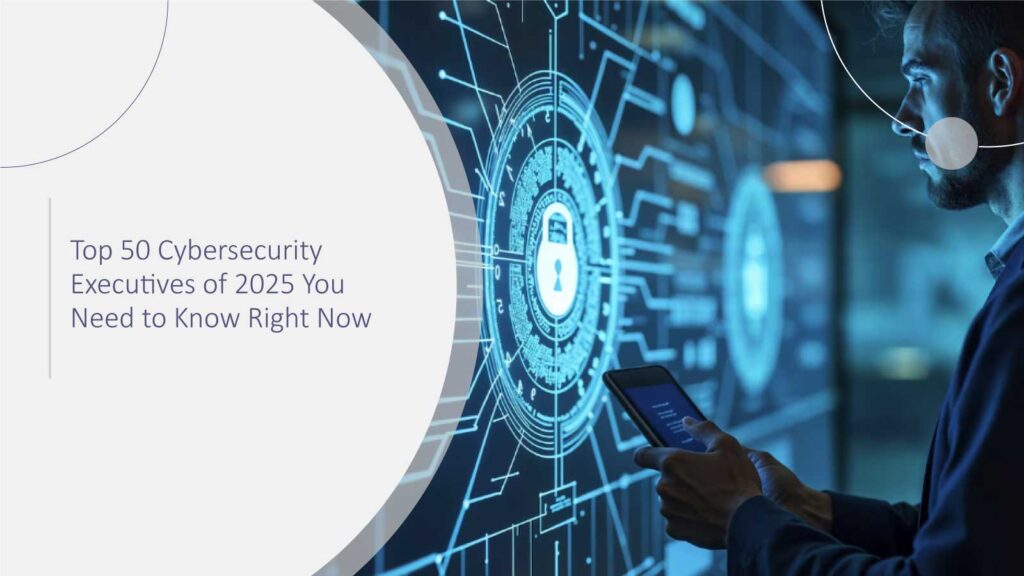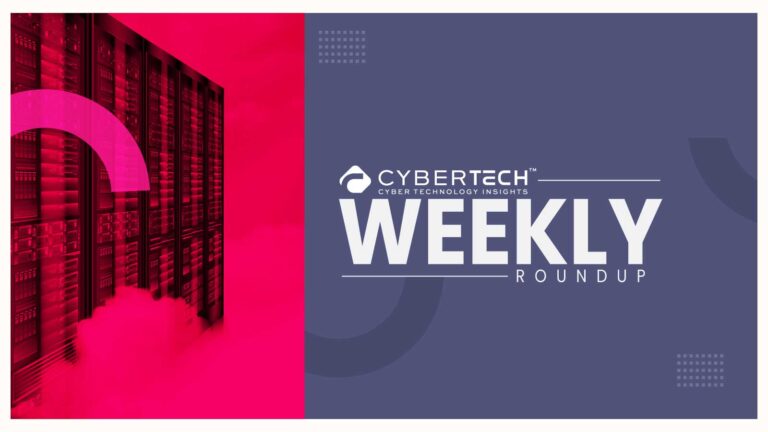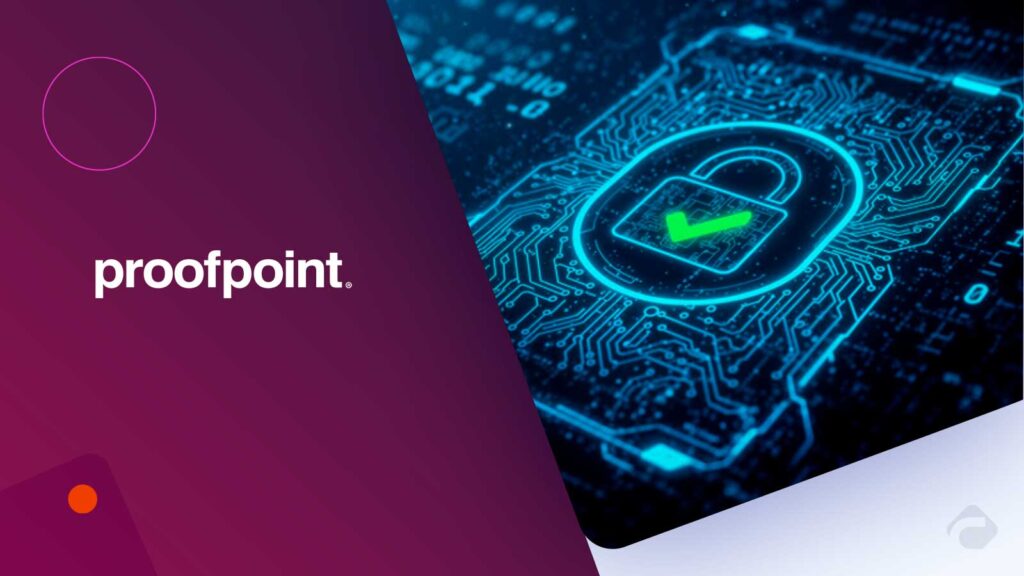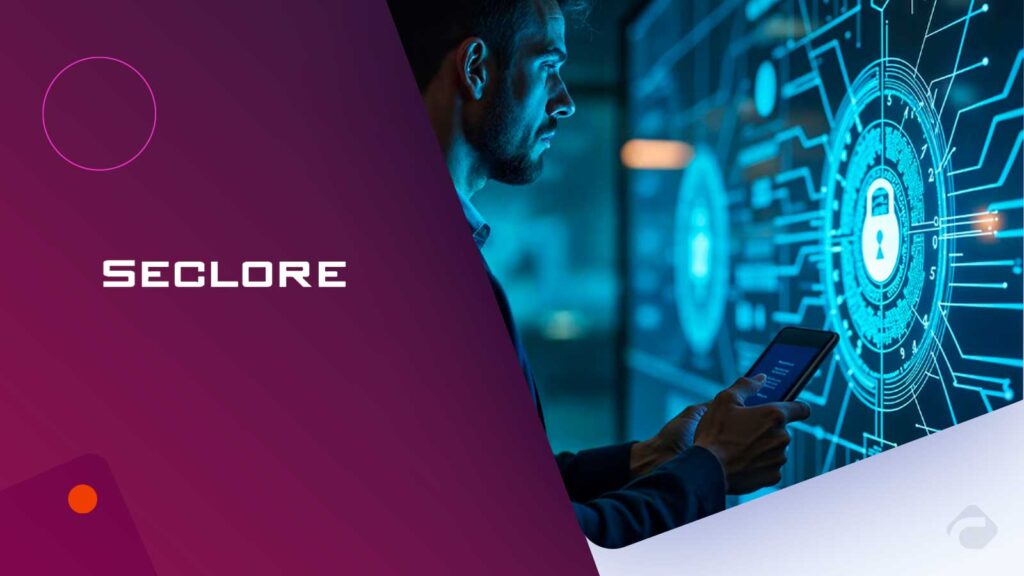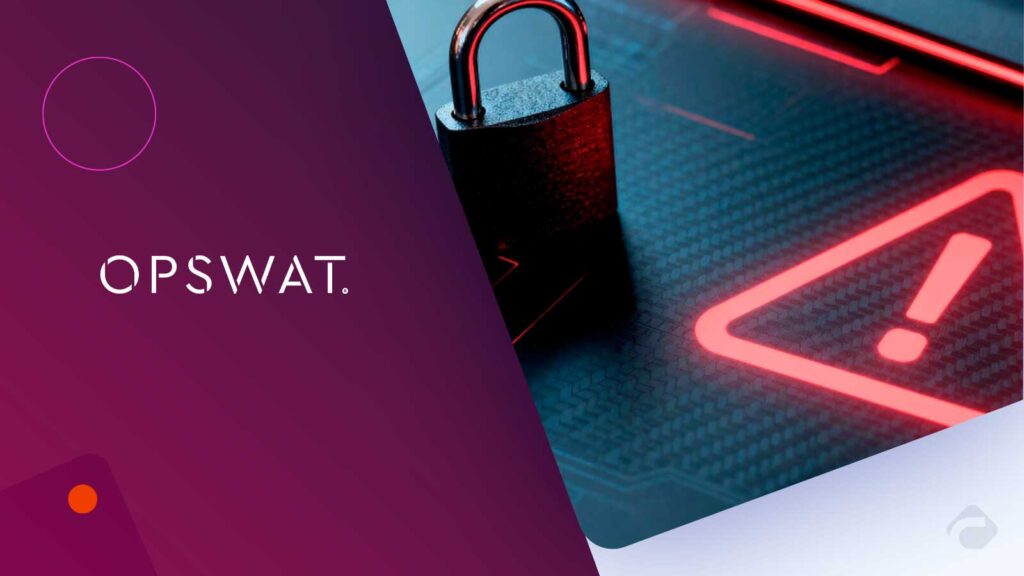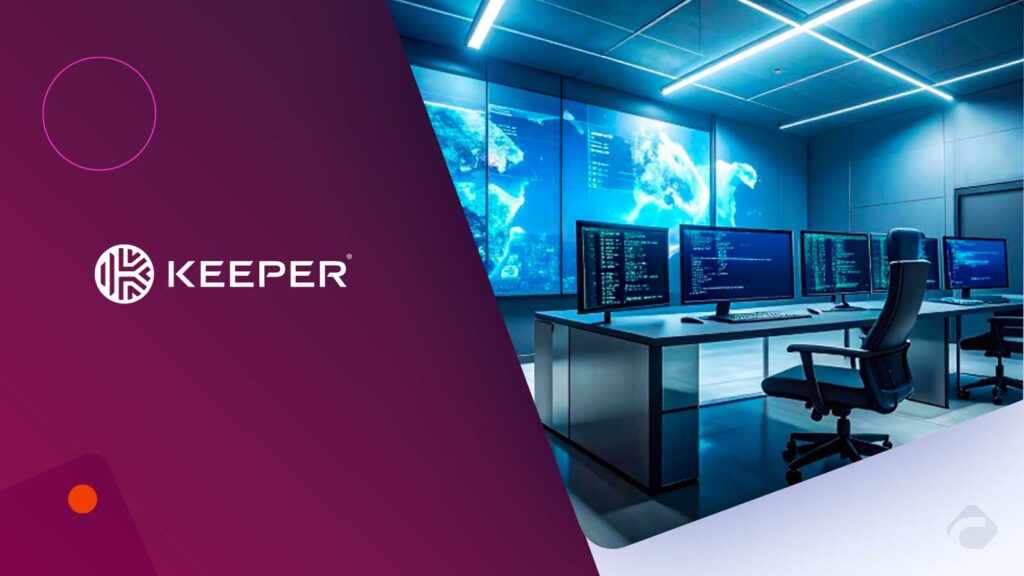Cybersecurity has evolved significantly from its origins as a back-office technical task to a global boardroom issue. From malware following on the heels of ransomware and nation-state attacks all the way through deepfakes-induced cons, the influence in 2025 is greater than ever. In the shadows are the pioneers, the visionaries who are paving the way for how businesses, governments, and individuals safeguard themselves online. This piece informs 50 of the world’s most influential cybersecurity executives and strategists. They have shaped the strategy, policy, and innovation that defend our hyperconnected world. They are CEOs of significant security vendors, working closely with legislators and CISOs who run billion-dollar infrastructure, with their reach impacting all aspects of the cyber ecosystem.
Meet the 50 executives defining cybersecurity in 2025.
1. George Kurtz – CrowdStrike Co-Founder & CEO
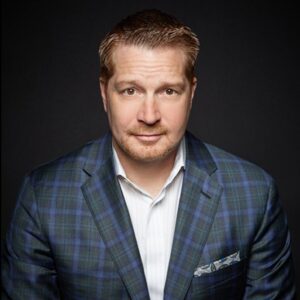
George Kurtz founded CrowdStrike and made it the world’s most innovative cybersecurity leader. His endpoint detection and response vision changed the way companies fight breaches from traditional AV to cloud-native, AI-driven defense. CrowdStrike, the industry’s gold standard for real-time breach prevention, particularly against nation-state attackers, was defined during his time as CEO. Kurtz is a strong proponent of pre-emptive threat intelligence and defense paradigms in 2025. His expertise on ransomware and APTs is shaping enterprise security paradigms and cyber policy for government.
His innovative work is centered on intelligence-driven security and detection speed. One of the world’s greatest entrepreneurs and builders, Kurtz has reimagined CrowdStrike as a gold standard for performance, scalability, and resilience in an increasingly dark digital age.
2. Jen Easterly – Director, Cybersecurity and Infrastructure Security Agency (CISA)

CISA Director Jen Easterly is spearheading efforts to secure the United States’ critical infrastructure. A retired Army officer and career NSA official, Easterly possesses solid national security leadership experience. An experienced practitioner in public-private partnerships, she collaborates with industry leaders to protect key sectors such as energy, finance, and health from advanced cyber threats.
Easterly leads more in cyber resiliency, talent acquisition, and digital trust in 2025. Easterly is also among the best voices for diversity in cybersecurity, inviting even more women and underrepresented minorities to the profession to address talent shortages.
3. Gil Shwed – Founder & CEO, Check Point Software Technologies

Gil Shwed, credited sometimes with inventing the modern firewall, founded Check Point in the 1990s and built it to be a cybersecurity giant for decades.
His focal point has always been the preemption of attacks to eliminate their potential to cause damage, and ongoing trends on the prevention of threats, secure cloud, and mobile threat protection. Shwed highlights the power of AI-based threat detection to battle more advanced attackers in 2025. His capacity to absorb Check Point’s approach and reinterpret it is the reason why it’s an iconic brand for a worldwide enterprise security computer software vendor.
4. Kevin Mandia – Former CEO, Mandiant (Google Cloud)

US Air Force veteran Kevin Mandia is arguably the most respected cyber intelligence and response practitioner.
He was the CEO of Mandiant, a Google Cloud company, and he has made the company a global incident response and threat intelligence market leader. Mandia’s response teams will often handle high-profile breaches, state-sponsored attacks among them. For 2025, he emphasizes intelligence-driven defense planning and government-enterprise collaboration. His message is heard in boardrooms and in national security dialogue across the globe.
5. Jay Chaudhry – Founder & CEO, Zscaler

Jay Chaudhry started Zscaler as an innovation cloud security platform for SASE and ZTNA.
His rags-to-riches startup journey from ground zero in India to heading a multibillion-dollar company in Silicon Valley is one that inspires fellow working professionals in the cybersecurity space. By 2025, Chaudhry envisions the zero-trust revolution that can help organizations shift from perimeter-centric security models to identity-first, cloud-first models. His vision reflects how secure digital transformation is necessary for businesses that are finding it difficult to manage hybrid work, multi-cloud, and an ever-changing cyber threat landscape.
6. Nicole Eagan – Chief Strategy& AI Officer, Darktrace

Nicole Eagan has been leading the way in building Darktrace as a market leader in AI-driven cybersecurity innovation.
She is a strong advocate of the “immune system” strategy for security based on self-learning AI, which can detect abnormalities and automatically defend itself as Chief Strategy& AI Officer. Darktrace has built its international footprint under her helm, especially in sectors such as healthcare and manufacturing, where defense needs to happen immediately. Eagan leads the new intersection between artificial intelligence and human-initiated security measures in 2025. She is mostly a proponent of responsible use of AI in cybersecurity to make sure that innovation accompanies transparency and trust.
7. Nikesh Arora – CEO, Palo Alto Networks

Nikesh Arora is in the enviable position of leading Palo Alto Networks, one of the largest pure-play cybersecurity companies on the planet, as CEO. At the company, Arora is focused on innovation and at the forefront of expanding the growth of cloud security and AI-based detection and prevention of threats.
Under his leadership, Palo Alto Networks is successfully scaling its value proposition to expand its footprint in protecting its customers’ digital enterprises. In a recent company-wide presentation, Arora discussed an approach of using technology powered by the highest level of planned business agility to adapt to continuously evolving cyber threats. Arora is not simply innovating product capability. He is innovating industry-wide practice and policy regarding cybersecurity, and as such, is a significant individual in the global cybersecurity landscape for 2025.
8. Rohit Ghai – RSA Security CEO

Rohit Ghai heads RSA, the most experienced identity and access management brands. Ghai has revamped RSA’s solutions to deal with zero-trust and cloud-first business requirements throughout his career.
Ghai places identity at the cybersecurity point of focus in 2025, revealing that attackers attack bad authentication first before undertaking broader intrusions. He is also upfront about the need to connect risk management to business outcomes to enable CISOs to deliver value to boards. Ghai’s focus ensures RSA remains a trusted partner for enterprises managing complex, hybrid IT environments.
9. Nicole Perlroth – Cybersecurity Advisor & Author

Nicole Perlroth, a celebrated journalist with The New York Times, has become a top expert on zero-day exploits and international cyber policy. She is now a federal government advisor on cybersecurity policy and strategy, but continues to raise awareness in the general public about cyber threats.
She is today, in 2025, a highly demanded speaker and consultant, notably on the ethics of cyber war and software exploits. Her very successful book on cyberweapons became one of the most recognizable works to serve as a bridge between policy, journalism, and enterprise security. Perlroth remains a combatant against complacency in the public and private sectors.
10. Jane Horvath – Apple, Former Chief Privacy Officer

Apple’s Ex-Chief Privacy Officer Jane Horvath is a key operator at the nexus of privacy, regulation, and security. Horvath is tasked with positioning Apple devices and services as a champion of trust in users’ minds during the history of the company’s history.
Horvath is out front in 2025 to stay in line with changing worldwide data protection legislation, from GDPR updates in Europe to state-level regulation in the US. Her work also makes it so privacy is never an afterthought, but a core to a product feature.
She is among the most powerful voices to show the world that security and privacy are not enemies of innovation.
11. Steve Martino – Former SVP & Chief Information Security Officer, Cisco

He was the Senior Vice President and CISO at Cisco. Steve Martino is the guardian of one of the world’s largest and most integrated collections of tech. Tasked with both enterprise security inside the company and customer trust, Martino has a mission to infuse security into Cisco’s enormous portfolio of networking and cloud products.
In 2025, he calls for zero-trust architectures, AI-driven threat detection, and cross-industry collaboration. His executive presence is required to enable Cisco customers to enable them with the capacity for managing hybrid workspaces while remaining resilient. Martino is a rockstar for taking security into the boardroom and framing it as defense, instead of a competitive edge.
12. Ian Levy – Former Technical Director, UK National Cyber Security Centre (NCSC)

Ian Levy was among the UK’s national cyber defense forces that drove. As an Ex-Technical Director of the National Cyber Security Centre (NCSC), he has spearheaded the drive towards making the government, industry, and critical infrastructure more cyber resilient. Practical and pragmatic in his approach, Levy has translated technical cybersecurity concerns into policy feasibility.
His work across cloud adoption, trusted digital identity, and national incident response frameworks has had a strategic impact well outside the UK. Levy’s action signals the increasing importance of robust public-private partnerships to counter nation-state attacks and protect digital economies in 2025 and beyond.
13. David Goeckeler – Former CEO, Western Digital

Western Digital’s Former CEO, David Goeckeler, has led the storage giant into data security leadership. With an extensive background as a successful past Cisco executive, Goeckeler contributes fervent expertise in networking and cybersecurity to the position.
In 2025, he is committed to securing storage, encryption, and scalability for enterprise and consumer data protection.
Western Digital has been at the forefront of innovations such as hardware-based encryption and secure cloud storage during its career, addressing the high-pitched increasing threat of ransomware and data breaches. Goeckeler’s vision goes beyond storage, positioning Western Digital as a reliable guardian of data integrity in an accelerating world with digitization.
14. Dmitri Alperovitch – Ex-Chairman, Silverado Policy Accelerator

Dmitri Alperovitch was a well-known Chairman at Silverado Policy Accelerator, an organization created to address cybersecurity and geopolitics. He has experience working in technology, public policy, and international strategy. Through 2025, Alperovitch is one of the leaders in discussions on cyberwar, resiliency in supply chains, and government intervention to deal with cyber adversaries.
With extensive background knowledge on threat intelligence and nation-state actions, he offers policymakers hands-on experience to deal with sophisticated actors. Alperovitch’s vision puts cybersecurity not only as an enterprise problem but as a core pillar of international affairs and national security.
15. Wendy Thomas – Ex-President & CEO, Secureworks

Secureworks Ex-President and CEO Wendy Thomas is leading the company’s charge to remain ahead of threats with threat intelligence and managed security services. Secureworks with Thomas has become an essential business ally for organizations to assist them in navigating the hybrid and multi-cloud complexity.
With 2025 looming on the horizon, Thomas is concentrating more on collaboration and intelligence exchange to remain a step ahead of AI and ransomware attacks. In all the noise of innovation, she has led Secureworks Taegis, an integrated response, detection, and analytics platform. Thomas is one of the new breed of cybersecurity leaders who combine technology expertise, business strategy, and customer focus.
Recommended: Accelerate Action” in Security: Top Women Tech Leaders Share their CyberTech Insights
16. Alexis Wales – Chief Information Security Officer (CISO), GitHub

Alexis Wales is the Chief Information Security Officer at GitHub. She has more than 20 years of experience in securing critical digital systems, during which time she held cybersecurity leadership positions at the U.S. Department of Defense and CISA. As such, she is responsible for the platform and product security at GitHub.
She aims not only to safeguard the company’s infrastructure but also to unleash the open-source community of more than 150 million developers so that they may create effortlessly and securely. Alexis, who is recognized as a promoter of collaboration across different industries, states that real cybersecurity success will come when organizations can draw connections rather than walls. With open-source threats and generative AI knocking on the door, his vision makes GitHub a secure space to innovate everywhere.
17. Padraic O’Reilly – Founder & Chief Innovation Officer, CyberSaint

Padraic O’Reilly is CyberSaint’s innovator-in-chief, a risk management platform that sets companies up to close the security, compliance, and business resilience gap. His vision is to make cybersecurity not a game of backpedaling, but a growth strategy.
O’Reilly has led the way in mainstreaming AI-driven risk quantification, equipping CISOs with the ability to finally have their voice heard in the boardroom with fiscal precision. His vision establishes the standards by which business organizations engage with business performance as well as cybersecurity. Amid a world where compliance is tightening on all sides, O’Reilly is keeping its business compliant while building their competitive advantage.
18. Dimitri Sirota – Co-Founder & CEO, BigID

Dimitri Sirota established BigID as the market leader in data security, compliance, and privacy. As the CEO, he defines innovation as the realization of how companies discover, classify, and secure sensitive data on a huge hybrid terrain. When regulators are levying higher fines and customers are demanding trust, Sirota’s mission has been to measure and respond to data protection.
With BigID, which he drove to cloud-native security and AI governance so that companies could manage risk without stifling innovation, Sirota has been responsible for building the category of privacy-tech.
Sirota remains at the forefront of how companies comprehend the digital nuances of trust.
19. Travis Rosiek – BluVector Chief Technology & Strategy Officer

Comcast subsidiary BluVector is led by Chief Technology & Strategy Officer Travis Rosiek in building AI-based cybersecurity products to detect and isolate sophisticated attacks.
Having thirty years of defense and intelligence experience, Rosiek uses powerful technical expertise to combat zero-day malware, insider threats, and nation-state attacks. He wants to offer scalable solutions to organizations without disrupting business. By uniting machine learning with true field threat intelligence, Rosiek solidly positioned BluVector at the forefront of next-generation intrusion detection. His vision is highly sought across the industry for truthfully speaking and not using jargon in a bid to concentrate on outcomes that matter in enterprise networks, as well as critical infrastructure.
20. Anne Neuberger – Former Deputy National Security Advisor for Cyber and Emerging Technology, The White House

Anne Neuberger is the most significant voice on US cybersecurity policy. She spearheads national policy at the White House for cyber defense against ransomware, protecting critical infrastructure, and cyber diplomacy abroad. Neuberger coordinated public-private partnerships to counter nation-state attacks.
Her experience varies from director at the NSA‘s directorate of cybersecurity, where she handled proactive defense and transparency. At present, in her new role, she acts as the liaison between the government, the private sector, and international partners.
With rising cyber attacks amid rising geopolitical tensions, Neuberger’s vision has America strong and nimble.
21. Steve Grobman – McAfee Chief Technology Officer

McAfee’s global technology leadership is guided by Chief Technology Officer Steve Grobman as he spearheads its evolution into a consumer and business security market leader. A member of Intel Security’s family for decades, Grobman has been a pioneering figure in applied cybersecurity research and product innovation for several decades.
At McAfee, he is committed to using AI to detect smart threats and protect against billions of devices. His industry-specific collaboration has achieved better collective insights to battle malware and fraud. Grobman is a credentialed author and speaker, breaking down intricate cybersecurity issues into understandable terms for larger audiences. His work keeps McAfee in the game in an evolving security landscape.
22. John McClurg – SVP & Chief Information Security Officer, BlackBerry

John McClurg spearheads security strategy at BlackBerry, the firm that has re-invented itself from mobile to cybersecurity pioneer. Having experience so deep in corporate and government roles, McClurg applies a special kind of experience to protecting valuable assets.
His areas of interest include endpoint security, secure communications, and AI as a means of predicting attacks.
He has worked for BlackBerry as the automotive security and IoT resiliency head for BlackBerry. Outside of business, McClurg is also a cyber ethics and insider threat legend who participates worldwide in digital trust discussions.
23. Phil Venables – Former Google Strategic Security Officer

Google Strategic Security Officer Phil Venables is one of the most powerful CISOs globally. With more than four decades of experience, starting at Goldman Sachs with his prior background as a CISO, Venables brings financial-industry heritage with state-of-the-art cloud security expertise.
At Google, he spearheaded initiatives to integrate security by design into infrastructure, products, and services. Venables is also occasionally interviewed on his perspective regarding resilience, cyber risk management, and policy, which has given him a voice of authority across industries. His vision continues to hold Google Cloud to the gold standard for secure, scalable, and enterprise-grade cloud services worldwide.
24. Parisa Tabriz – Ex-VP of Engineering, Chrome Security, Google

Parisa Tabriz, Google’s self-proclaimed “Security Princess,” is leading the charge of automating Chrome’s security engineering teams to guard billions of users globally. She has been an advocate for openness, bug bounties, and revolutionary browser security initiatives throughout her entire career.
Chrome pioneered features such as HTTPS by default and warnings on dangerous sites first under her direction, then raised the bar for internet safety.
Tabriz is a diversity and technology model for cybersecurity, an inclusion and sponsorship leader. In an internet-led world with web browsers as the first points of contact to the internet, her vision protects common consumers from phishing, malware, and other web-based threats daily.
25. Sudhakar Ramakrishna – Ex- CEO SolarWinds
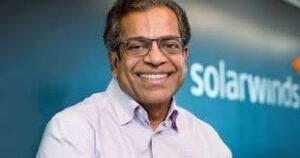
Sudhakar Ramakrishna guided SolarWinds through one of the largest and most high-profile cybersecurity breaches of all time, the 2020 supply chain attack.
In his stint as CEO, his vision of building robust transparency, by secure-by-design, and fostering industry partnership has set the benchmark for how suppliers respond to supply chain risk. Ramakrishna advocates a light-touch, zero-trust environment and acknowledges the imperative to drive detection-response loops. Under his leadership term at SolarWinds, the company has transitioned towards a record of education and resilience, and not scandal. His call to action in collective defense acknowledges that in the present digital world, no organization can combat mobile threats alone.
26. Chris Young – Ex-EVP, Microsoft

Microsoft EVP Chris Young is a force to be reckoned with in Microsoft’s worldwide cybersecurity efforts following experiences as CEO with McAfee.
With more than three decades of corporate security experience under his belt, Young is an in-demand voice for safe digital transformation at scale.
At Microsoft, his responsibility is to bring together cutting-edge threat defense with AI-based security technologies to protect hybrid work and multicloud environments. Having the capability to bring together business requirements and cybersecurity processes allows organizations globally to meet productivity and safety needs. Young’s vision aligns with Microsoft’s vision to bake security into every product and create a gold standard for enterprise technology trust.
27. Kelly Bissell – Ex-Corporate VP, Microsoft Security

Kelly Bissell, Ex- Ex-Corporate Vice President, Microsoft Security, is a worldwide leader redefining how businesses protect themselves in the cloud-first era. With operating history running Deloitte Cyber and Accenture Security, Bissell is both a consultant and an operator.
Within Microsoft, he concentrates on secure access, identity management, and AI-driven security for global-sized businesses.
Bissell would rather stress that not only are cyber resiliency cutting-edge devices, but they also have board-level duty and close cross-industry coordination. His impact extends beyond Microsoft, however, in that he is highly invested in industry dialogue regarding today’s cyber governance, resiliency, and digital identity protection requirements.
28. Donna Dodson – NIST Former Chief Cybersecurity Advisor

Donna Dodson has pioneered U.S. standards in cybersecurity. A former Chief Cybersecurity Advisor at NIST, she was the leader in framing the frameworks from which organizations around the globe borrow their cues today, such as the NIST Cybersecurity Framework.
Dodson framed her approach by applying quantifiable outcomes and risk-based methods so that organizations can invest strategically in defense.
However, in the non-government environment, she continues to advise and consult on national security policy. Dodson’s legacy is to acknowledge the foundational role of standards as a means of building trust in the digital economy and safeguarding critical infrastructures.
29. Kevin Brown – Ex-Managing Director, BT Security

Kevin Brown is the Managing Director of BT Security and is heading up one of the world’s largest managed security services providers. With thirty years of a cybersecurity and telecom career under his belt, Brown makes sure that not just BT secures its enormous network, but it also secures businesses and governments worldwide.
His vision of intelligence-led defense is one of defensive wisdom, where BT’s global reach is utilized to seek out and counterattack threats anywhere on the planet. Brown is constantly discussing the need for private and public organizations to work together if they are to address the risks of a systemic kind. His vision for the future is one where BT leads the way in protection against mass digital infrastructure attacks from across the world.
30. Shamla Naidoo – Former Head of Cloud Strategy & Innovation, Netskope

Shamla Naidoo, a seasoned industry cybersecurity executive, is notable for her business transformation leadership in IBM, Anthem, and formerly Netskope, where she is head of cloud strategy and innovation. Having a background in risk, governance, and cyber resiliency, Naidoo is a strong believer that security needs to be part of business innovation rather than get in the way of it.
A Netskope team member, she assists organizations in safeguarding their cloud-first strategy by maintaining agility and scale along with security policy. She is a diversity leader, tech mentor, and believes that improved cybersecurity outcomes come from more robust and diverse teams. Her global outlook places her among the 2025 speakers to watch.
31. Brett Wahlin – VP & CISO, Apple
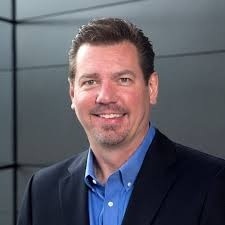
Apple Vice President and Chief Information Security Officer Brett Wahlin brings decades of security leadership from multinational corporations to his resume, having previously worked for HP, Sony, and General Motors. At Apple, he is leading the charge to safeguard one of the globe’s most valuable brands through the integration of hardware security, privacy engineering, and forward-thinking encryption.
Wahlin has consistently been an outspoken champion of privacy as an inherent human right, so Apple continues to lead the way in finding the perfect balance between user experience and safe protection.
His leadership is a manifestation of the larger imperative to weave cybersecurity into all product development. Wahlin’s work is part of Apple’s great tradition of safeguarding user data across the globe.
32. Wendi Whitmore – Sr. VP, Unit 42, Palo Alto Networks

Wendi Whitmore is the senior vice president of Palo Alto Networks‘ Unit 42, which is the worldwide threat intelligence and incident response of Palo Alto Networks. With her previous experience at IBM X-Force and CrowdStrike, Whitmore is now a leading voice for nation-state attacks and cybercrime.
As a leader with Unit 42, she conducts large-scale investigations to enable companies to understand what to do in the event of some of the most sophisticated breaches in the world. Her expertise drives not only Palo Alto Networks technology, but industry practices as a whole. Whitmore’s ability to marry technical acumen with executive-level presentation has earned her a top consultant commodity to companies whose crisis is imminent in the new-world, high-stakes cyber warfare field.
33. Mark Hughes – Ex-President, Security, DXC Technology
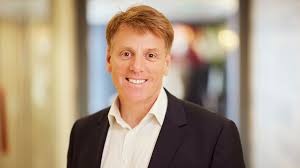
Mark Hughes was the global leader of DXC Technology’s security practice with over thirty years of cybersecurity experience. Levy used his tenure as BT Security CEO to place DXC’s managed security services solutions, cloud security, and cyber resilience.
He has directed governments, defense agencies, and Fortune 500 companies in safeguarding their most important digital assets. DXC, under Hughes’ direction, focuses on facilitating the safe journey of companies to hybrid and andmulti-clouds environments. Hughes is globally renowned for bridging the cyber operations and business strategy gap and incorporating security into all dimensions of digital transformation.
34. Clar Rosso – CEO, (ISC)²
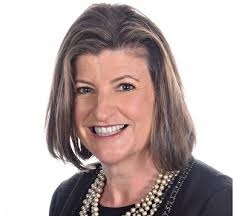
Clar Rosso was the ex- CEO of ISC², a nonprofit international membership association of certified cybersecurity professionals. She has education and workforce development experience and has played a critical role in building certification standards that prepare professionals for career advancement in the field of cybersecurity.
She is committed to diversity, accessibility, and lifelong learning, and is committed to addressing the global cybersecurity talent shortage. Her leadership facilitated the development of training programs for emerging professionals and brought recognition of the CISSP credential worldwide.
In delivering inclusivity, Rosso makes sure (ISC)²’s initiatives make a difference for all levels of professionals, being the first in being a cyber defense readiness and talent development leader.
35. Sumit Dhawan – CEO, Proofpoint

Sumit Dhawan is the CEO of Proofpoint, an employee-first and security-first cybersecurity pioneer. Dhawan, with extensive leadership tenure at VMware and Instart, is looking to further drive Proofpoint’s momentum in email security, insider threat, and compliance.
He has always been a key advocate for how Proofpoint can leverage best-in-class AI and behavior analytics capabilities to safeguard individuals, the most valuable asset of any organization. Dhawan also prioritizes customer-led initiatives, expanding enterprise and government customer solutions at Proofpoint. His vision extends to leadership, to,o where cybersecurity evolves to meet changing attacker methods, safeguarding employees from phishing, social engineering, and data theft.
36. Frank Catucci – Invicti Security Ex- CTO & CISO, Invicti Security
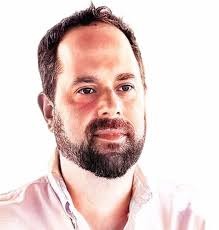
Frank Catucci was the Invicti Security Chief Information Security Officer and Chief Technology Officer, driving web application security innovation. Catucci, who has spent over 20 years at Gartner and Qualys, among others, is best known for driving secure coding practices and vulnerability scan technology innovation.
At Invicti, he led efforts in building scalable, automated solutions to enable organizations to stay ahead of the constantly changing application security threat landscape. Catucci advocates for the integration of security into DevOps pipelines to enable vulnerabilities to be identified and remediated early in the pipeline. In both capacities, he is able to combine vision with action, positioning Invicti on the front lines of AppSec.
37. Deborah Wheeler – Delta Air Lines Chief Information Security Officer
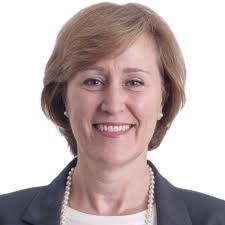
Deborah Wheeler is Delta Air Lines’ Chief Information Security Officer, protecting one of the world’s biggest airlines from cyber threats.
Wheeler has experience at Capital One, Freddie Mac, and Fifth Third Bank, where she applies broad cross-industry knowledge to aviation security. She is fascinated with protecting customer information, operational networks, and critical infrastructure from new threats. Under Wheeler’s guidance, Delta has become more cyber-resilient and facilitated aviation security industry collaboration. Wheeler is also an outspoken advocate for growing women’s leadership in cyber.
38. David Fairman – Netskope CIO & CSO
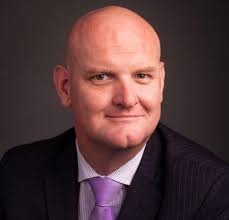
David Fairman is the Chief Information Officer and Chief Security Officer of Netskope, where he leads strategy in security, IT, and enterprise resilience. With his experience at National Australia Bank and RBC as a leader, Fairman will design risk management frameworks to scale globally. At Netskope, he significantly contributes to designing Secure Access Service Edge (SASE) and cloud security architecture.
He is no unfamiliar face to promoting data-driven defense, in which sensitive information is safeguarded in hybrid and multi-cloud setups.
Fairman’s style marries executive-level strategy with technical acumen to transform Netskope into a cloud-first security leader.
39. Eva Chen – CEO, Trend Micro
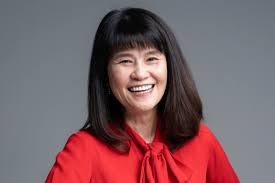
Eva Chen is the global chief executive officer of Trend Micro, a cybersecurity solutions company that is recognized internationally. Chen brings years of technology and business experience and has championed Trend Micro into a position of leadership in threat intelligence and cloud security, in addition to architecting and implementing technology and business capabilities to respond to increasingly advanced levels of threat narratives.
Chen has led the continued evolution of the company to embrace the importance of innovation in the digital world through facilitating AI-based security and protection for organizations and consumers globally. Chen has built a reputation as a pioneering technology leader focused on urgent issues of privacy and data protection, collaboration and partnerships in the cybersecurity ecosystem, and the role of diversity in technology.
Chen’s work in cultivating a visionary response to the chaos and complexity of the present state of the digital age has positioned Trend Micro further “ahead” as a trusted partner area where it is building collaborative spaces to maximize and build out cyber security opportunities to create – an ecosystem for a “promising” digital future while the threat landscape is growing and threatening all organizations and consumers regardless of whether they are in the private, public or socio-economic landscape.
40. Tom Leighton – CEO, Akamai Technologies
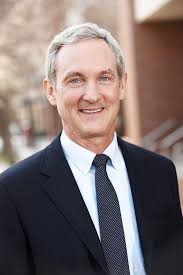
Tom Leighton is the Chief Executive Officer (CEO) of a leading global provider of Content Delivery Network (“CDN”), Akamai Technologies, Inc. Although each position at Akamai is important, the CEO sets the tone for everything.
Mr. Leighton has effectively raised awareness of the need to protect web applications and APIs from sophisticated cyber threats that include Distributed Denial of Service (“DDoS”) attacks and bot attacks.
As a dynamic leader known for his willingness to enter the “dark side” of security offerings that help companies create secure, fast, and reliable online experiences, Mr. Leighton and his passion for applied computer science and leveraging technology advances put Akamai in the position of being able to defend the internet’s critical infrastructure in 2025.
41. Ken Xie – Founder & CEO, Fortinet
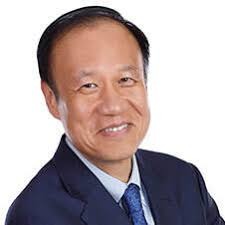
Ken Xie is the founder of Fortinet and has remained the CEO, which is now firmly one of the largest cybersecurity companies in the world, and is well known for providing some of the best-performing network security products in the world. As a serial entrepreneur, Xie has built product and technology companies for more than 20 years. He was instrumental in pioneering integrated security architectures that provided value by providing multiple security tools on a single platform to help organizations secure their increasingly complex and convoluted IT ecosystem.
Fortinet is working at the leading edge of the cybersecurity industry and is concentrating on next-generation firewalls, secure SD-WAN, and Artificial Intelligence-driven advanced threat intelligence solutions. Ken is working to develop scalable security frameworks, while allowing organizations to continue to adapt and innovate, as they transform their enterprises into fully digitized environments, embrace the cloud, and deal with the growing complexity and frequency of cyber threats. Xie is viewed as a thought leader in the cybersecurity space and globally as a contributor to insights to help drive the future of the cybersecurity industry.
42. Tomer Weingarten – CEO & Co-Founder, SentinelOne
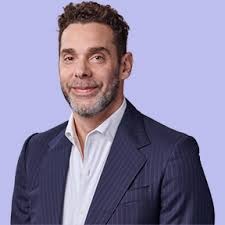
Tomer Weingarten is the CEO and Co-Founder of SentinelOne, a leading cybersecurity company focused on autonomous endpoint protection. SentinelOne began employing AI and machine learning in cybersecurity to provide instant detection, prevention, and after-the-fact response to cyber attacks, whether they live on an endpoint, a cloud workload, or an IoT device.
Tomer is passionate about providing organizations with fully automated, adaptive security solutions that completely remove manual human processes to maintain a high level of overall security and speed across the organization to counter highly sophisticated attack vectors.
Tomer has benefited from many years of security innovation and entrepreneurship to very rapidly grow the company, ultimately helping SentinelOne to emerge as a segment leader within the global cybersecurity market and supporting first-of-their-kind next-gen protection with growth strategies for 2025.
43. Kris Hagerman – CEO, Sophos

Kris Hagerman heads Sophos as its CEO, which is a company that is a world leader in cybersecurity, nd it is known for the solutions it provides in security that covers endpoints, networks, and cloud environments. He has been working in the technology and cybersecurity industries for more than 20 years.
Through his leadership, Hagerman directs the outcome at Sophos to be one of using AI to solve security challenges not only in a technical way but also in a simple one, and thus organizations become capable of blocking the cyber attacks that are getting more advanced in nature.
Under his management, the company has introduced its managed detection and response (MDR) service that is achieving the goal of providing a security solution that is seamless with the three elements of automation, threat intel, and the human expert.
He is one of the top people in the innovation field who always keeps the customer focus and is committed to the cause of global cybersecurity resilience.
44. Corey Thomas – CEO, Rapid7

Corey Thomas is the CEO of Rapid7, a top cybersecurity company that deals with vulnerability management, incident detection, and response. Deep under his leadership, Rapid7 has been very successful in transforming the security industry from a defensive to a proactive approach by employing advanced analytics, automation, and cloud-security solutions.
Thomas is committed to the method of combining net threat intelligence, risk evaluation, and IT operations into one system, which will then allow organizations to not only identify the threat but also to neutralize it in an efficient way. His strategic insight into placing the emphasis first and foremost on technology and customer-centric solutions has been the reason that Rapid7 is one of the leading companies in the field that keeps the complex digital environments of today safe.
Accordingly, he is also a great proponent of cooperation among the different players of the cybersecurity ecosystem as a way of making the world more resistant to cyberattacks.
45. Deneen DeFiore – Vice President & Chief Information Security Officer, United Airlines

As the CISO and Vice President at United Airlines, Deneen DeFiore is the one who shoulders the responsibility of security for the carrier, which is one of the biggest aviation networks in the world.
After spending numerous years as a cybersecurity executive at GE Aviation and then in the airline industry, DeFiore is the one who manages the security of the enterprise, the cyber resilience, and the risk management programs that are essential for the smooth functioning of flights all over the globe.
She is a committed supporter of the cause of women in cybersecurity and believes in forming good relationships between the public and private sectors so that we can tackle the new threats together. Thanks to her stewardship, United has made enormous strides in upgrading its cyber defense capabilities, thereby ensuring the safety of customer data as well as the security of intricate operational technologies.
46. John Hurley – Chief Revenue Officer at Optiv
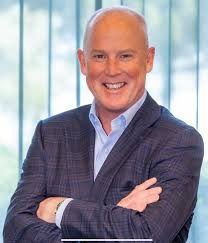
John Hurley has been recognized as one of the top 25 Cybersecurity Chief Executives – 2025, by The Software Report.
He has over 25 years working in technology leadership, achieving success in global enterprise organizations for which he both led revenue generation and go-to-market strategy for Optiv, delivering cybersecurity programs to thousands of companies.
He merges strategic business leadership with deep cybersecurity market expertise and is a compelling candidate to represent cybersecurity leadership at this level, 2025.
47. Mike Hanley – Former Chief Security Officer & SVP of Engineering, GitHub

Mike Hanley was the Chief Security Officer and the Senior Vice President of Engineering at GitHub, where he not only directs the company’s security strategy for the whole world but also takes care of the engineering process. Having the experience of leading positions at Duo Security (which was bought by Cisco) and CERT/CC at Carnegie Mellon, Hanley is known for blending his technical skills with his strategic vision.
At GitHub, he is leading such programs that enable platform as well as community (being open source) security, the main areas being secure software development, security of the supply chain, and threat response.
Moreover, Hanley is deeply committed to the concept of security being an integral part of the developer experience, thus assuring that GitHub stays the trusted core for millions of developers all over the globe.
48. Rinki Sethi – Chief Information Security Officer (CISO), Formerly at Twitter

Rinki Sethi was an executive in cybersecurity whose name came up as the Vice President and Chief Information Security Officer at Twitter after the 2020 security breach, a very well-known incident. She was the one who took leadership to the extent that solid platform defenses, the implementation of secure engineering practices, and user trust rebuilding after the incident were possible.
Besides that, she has been an instrumental leader at IBM and a resourceful advisor to organizations like Women in Cybersecurity. Sethi is known for her wide and strategic view of enterprise security as well as for her determination and practice of incident recovery, which helped Twitter move from a reactive stance to embracing strong, proactive measures against new dangers. Not only that, she is currently very active in the security community through her efforts and mentoring.
49. Brad Arkin – Chief Trust Officer, Salesforce

Brad Arkin is the Chief Trust Officer at Salesforce. His responsibility is to oversee the security strategy of the company and make sure that customer data is safe, as the world is going by AI.
He is a high-level security executive who has over twenty years of experience in the enterprise security industry, during which he was the Chief Security & Trust Officer at Cisco and the security head at Adobe for most of his career.
Very well. At Salesforce, Arkin is the heart of the brand- he is the one who builds trust with the stakeholders, provides more transparency, and sets a new standard for data security, privacy, and quality across the Salesforce ecosystem.m
50. Charles Carmakal – Mandiant Consulting Chief Technology Officer
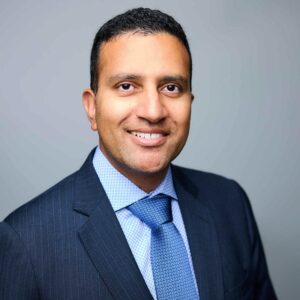
Charles Carmakal, who has managed incident response on several of the world’s biggest cyberattacks, is among the most respected crisis response names.
As CTO of Mandiant Consulting, he leads organizations through nation-state cyber espionage breaches, ransomware, and supply chain attacks. Through 2025, Carmakal architects’ companies’ security operation models to counter increasing threats.
He battles for lessons learned through breaches and demands constant testing, red teaming, and intelligence sharing. With technical acumen and level head in high-stress situations, he is the most sought-after advisor in high-risk environments.
Conclusion
Cybersecurity is no longer an isolated function – it’s a boardroom imperative. The 50 leaders showcased here aren’t only the guardians of enterprise security, but also the architects of digital trust in 2025. They labor in threat intelligence, AI defenses, cloud security, and worldwide policy leadership. They all lay groundwork for the future of cybersecurity in ways that echo well beyond their own firm, industry, government, and virtual individual life.
As threats become more sophisticated and attackers more adept, these executives remind us that resilience is not the product of technology but of vision, cooperation, and planning well in front of the curve.
Whether leading zero-trust deployment, buying next-gen AI protection, or mentoring the next generation of security specialists, they’re mapping the route to safer cyberspaces globally.
Cybersecurity is a sophisticated world, but thanks to these executives, also an inspiring one.
FAQs
1. Why one executive for every company?
As an expression of pride in having a diverse global perspective and avoiding over-representation, one executive from every company was selected.
2. How were they selected?
They were selected on the basis of influence, leadership position, and functionality in the 2025 cyber trends planning.
3. To which areas do they belong?
They belong to cloud, enterprise software, telecom, government, consulting, and AI-driven security.
4. Why is the target being set at 2025?
The list enumerates current priorities following the push for cybersecurity this year.
5. What is the most important lesson for professionals?
Foresight, collaboration, and empowering great digital ecosystems are the cybersecurity leadership of today.
For deeper insights on agentic AI governance, identity controls, and real‑world breach data, visit Cyber Tech Insights.
To participate in upcoming interviews, please reach out to our CyberTech Media Room at sudipto@intentamplify.com.

